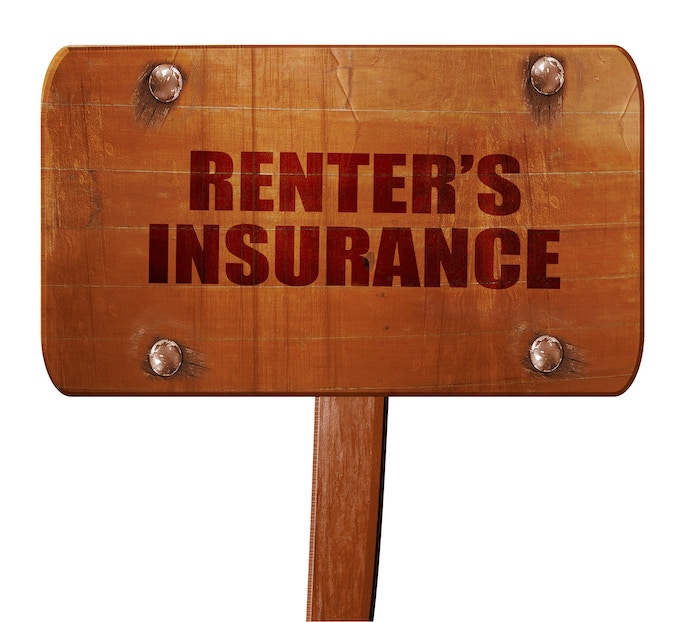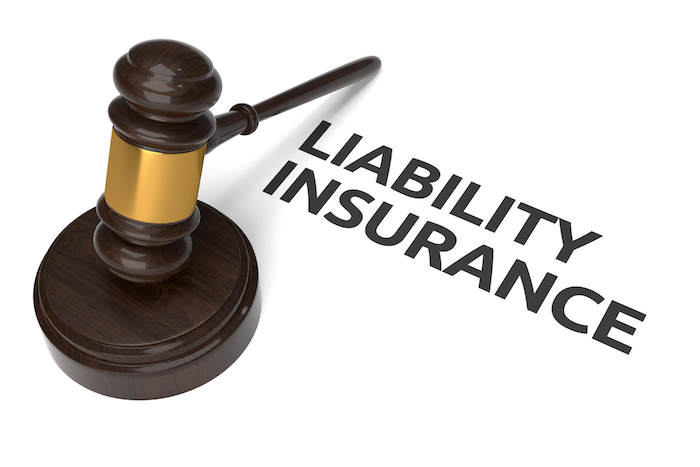Protecting your personal property should be a top priority if you’re renting a home or apartment. While your landlord’s insurance may cover the building, it typically doesn’t protect your belongings. That’s where renters insurance comes in. Renters insurance covers your personal property, liability protection, and additional living expenses in case of a covered loss. In this article, we’ll discuss the importance of renters insurance, its benefits, and how to choose the right policy for you. Whether you’re a seasoned renter or moving into your first apartment, understanding the value of renters insurance can help you protect your personal property and financial security.
Section 1: Understanding Renters Insurance
Renters insurance is a policy that provides coverage for renters’ personal property, liability protection, and additional living expenses in case of a covered loss. Here are some important things to know about renters insurance:
What is renters insurance?
Renters insurance is a type of insurance policy that covers renters’ personal property, liability protection, and additional living expenses in case of a covered loss. It’s important to note that renters insurance typically does not cover damage to the building itself, as that is the responsibility of the landlord’s insurance policy.
How does renters insurance work?
Renters insurance covers the renter’s personal property, such as furniture, clothing, and electronics, in case of covered losses due to theft, fire, water damage, and other specified events. The policy also provides liability protection in case someone is injured in the rental unit, and additional living expenses if the renter cannot live in their rental unit due to a covered loss.
Types of renters insurance
There are two main types of renters insurance policies: actual cash value and replacement cost. An actual cash value policy will pay out the depreciated value of the lost or damaged item, while a replacement cost policy will pay the full cost to replace the item.
Coverage options
Renters insurance typically includes coverage for personal property, liability protection, and additional living expenses, but additional coverage options may be available depending on the policy.
How to buy renters insurance
Renters insurance can be purchased from insurance companies, agents, and brokers. It’s important to shop around and compare quotes from different providers to find the best coverage for your needs.
Factors to consider when selecting a policy
When selecting a renters insurance policy, it’s important to consider the coverage options, deductibles, premiums, and any additional riders or endorsements that may be available. Reviewing the policy and understanding the coverage limits and exclusions is also important.
Section 2: Benefits of Renters Insurance
Renters insurance provides several important benefits to renters, including protection of personal property, liability coverage, additional living expenses, loss of use coverage, and protection against natural disasters.
Protection of personal property
One of the primary benefits of renters insurance is protection of personal property. Renters insurance can cover the renter’s belongings in case of theft, fire, water damage, and other covered losses. This can help renters recover the value of their lost or damaged items and avoid significant financial losses.
Liability coverage
Renters insurance also provides liability coverage in case someone is injured in the rental unit or if the renter is held responsible for damage to someone else’s property. This coverage can help pay for legal fees, medical expenses, and other costs associated with a liability claim.
Additional living expenses
If a covered loss makes the rental unit uninhabitable, renters insurance can cover additional living expenses, such as temporary housing, food, and other necessities. This can help renters avoid significant financial strain while they wait for their rental unit to be repaired or for a new rental unit to become available.
Loss of use coverage
Loss of use coverage is another benefit of renters insurance. If the rental unit becomes uninhabitable due to a covered loss, loss of use coverage can help pay for expenses associated with temporarily relocating, such as hotel stays or rental car expenses.
Protection against natural disasters
Renters insurance can also provide protection against natural disasters, such as hurricanes, tornadoes, and earthquakes. While coverage for natural disasters may not be included in all policies, it’s important to consider adding this coverage if you live in an area prone to these types of events.
Overall, renters insurance provides important benefits to renters, helping them protect their personal property, financial security, and peace of mind.
Section 3: How Renters Insurance Protects Your Personal Property
Renters insurance can protect your personal property from a variety of risks, including theft, fire, water damage, and other covered losses. Here’s how renters insurance can help protect your belongings:
Coverage for personal property
Renters insurance typically provides coverage for personal property, including furniture, clothing, electronics, and other items. If these items are lost or damaged due to a covered loss, renters insurance can help cover the cost of repair or replacement.
Actual cash value vs. replacement cost coverage
When choosing a renters insurance policy, it’s important to understand the difference between actual cash value and replacement cost coverage. An actual cash value policy will pay out the depreciated value of the lost or damaged item, while a replacement cost policy will pay the full cost to replace the item. Replacement cost coverage typically results in a higher payout, but may come with a higher premium.
Coverage for off-premises items
Renters insurance can also provide coverage for personal property that is not located in the rental unit, such as items stored in a storage unit or belongings that are taken on vacation. It’s important to review the policy to understand the coverage limits for off-premises items.
Coverage for specific items
Some renters insurance policies may provide additional coverage for specific items, such as jewelry or musical instruments. This coverage may be subject to additional premiums and deductibles.
Limits and exclusions
It’s important to review the policy and understand the coverage limits and exclusions. Some policies may have limits on the amount of coverage for certain types of items, such as electronics or high-value items. It’s also important to understand what is not covered by the policy, such as damage caused by floods or earthquakes.
Overall, renters insurance can provide valuable protection for your personal property, helping you avoid significant financial losses in case of a covered loss.
Section 4: Cost of Renters Insurance
The cost of renters insurance can vary depending on several factors, including the amount of coverage needed, location, deductible, and additional coverage options. Here are some factors to consider when estimating the cost of renters insurance:
Amount of coverage
The amount of coverage needed will depend on the value of personal property that needs to be insured. Renters should conduct a home inventory to determine the value of their belongings and ensure that they have adequate coverage.
Location
Location can also impact the cost of renters insurance. Renters in areas with higher crime rates or higher risk of natural disasters may pay higher premiums.
Deductible
The deductible is the amount that the renter will pay out of pocket before the insurance coverage kicks in. A higher deductible can result in lower premiums, but renters should ensure that they can afford to pay the deductible if a covered loss occurs.
Additional coverage options
Renters may have the option to add additional coverage options, such as coverage for natural disasters or additional liability coverage. Adding these options may increase the premium.
Discounts
Renters may be eligible for discounts on their renters insurance premiums, such as a discount for having a security system or for bundling renters insurance with other insurance policies.
The cost of renters insurance can vary widely, but it is generally an affordable way to protect personal property and avoid significant financial losses in case of a covered loss. Renters should compare quotes from multiple insurance providers to ensure that they are getting the best coverage at the best price.
Section 5: Frequently Asked Questions
What does renters insurance cover?
Renters insurance typically covers personal property, liability, and additional living expenses in case of a covered loss. Personal property coverage provides protection for personal belongings in case of theft, fire, or other covered losses. Liability coverage provides protection if the renter is found responsible for damage to someone else’s property or if someone is injured in the rental unit. Additional living expenses coverage can help cover the cost of temporary housing if the rental unit becomes uninhabitable due to a covered loss.
Is renters insurance required by law?
Renters insurance is not typically required by law, but some landlords may require tenants to have renters insurance as a condition of the lease.
How much renters insurance do I need?
The amount of renters insurance needed will depend on the value of personal property that needs to be insured. Renters should conduct a home inventory to determine the value of their belongings and ensure that they have adequate coverage.
Can I get renters insurance if I have a pet?
Yes, renters insurance typically covers liability in case of a pet-related incident, but it’s important to review the policy to understand any exclusions or limitations related to pets.
How do I file a claim with my renters insurance?
To file a claim with renters insurance, renters should contact their insurance provider as soon as possible after a covered loss. The insurance provider will provide instructions on how to file a claim and what information is needed to process the claim.
How can I lower the cost of renters insurance?
Renters can lower the cost of renters insurance by choosing a higher deductible, bundling renters insurance with other insurance policies, and taking advantage of any available discounts. It’s also important to compare quotes from multiple insurance providers to ensure that you are getting the best coverage at the best price.
Can I cancel my renters insurance policy?
Yes, renters can typically cancel their renters insurance policy at any time. However, renters should review the policy to understand any fees or penalties associated with cancelling the policy.
What is liability coverage in renters insurance?
Liability coverage in renters insurance provides protection if the renter is found responsible for damage to someone else’s property or if someone is injured in the rental unit. It can also cover legal fees if the renter is sued for damages.
What is additional living expenses coverage in renters insurance?
Additional living expenses coverage in renters insurance can help cover the cost of temporary housing if the rental unit becomes uninhabitable due to a covered loss, such as a fire or natural disaster.
Does renters insurance cover water damage?
Renters insurance may cover water damage in certain situations, such as if the water damage was caused by a covered event, like a burst pipe. However, renters should review their policy to understand any exclusions or limitations related to water damage.
What is a deductible in renters insurance?
A deductible in renters insurance is the amount that the renter will pay out of pocket before the insurance coverage kicks in. A higher deductible can result in lower premiums, but renters should ensure that they can afford to pay the deductible if a covered loss occurs.
Can I add additional coverage options to my renters insurance policy?
Yes, renters may have the option to add additional coverage options, such as coverage for natural disasters or additional liability coverage. Adding these options may increase the premium.




